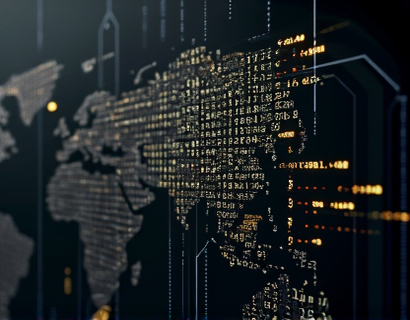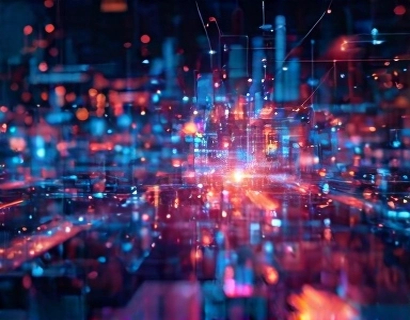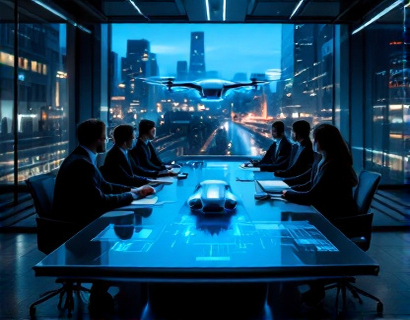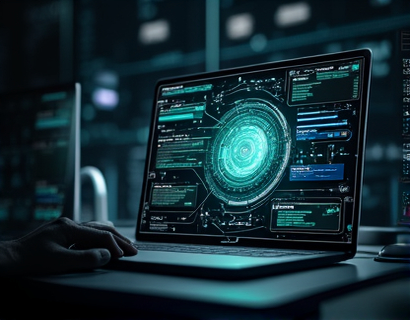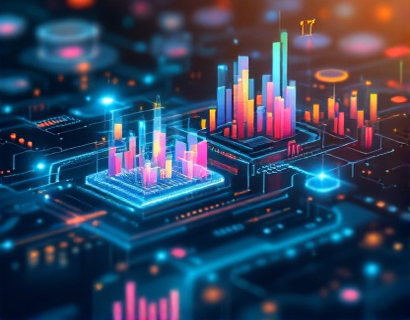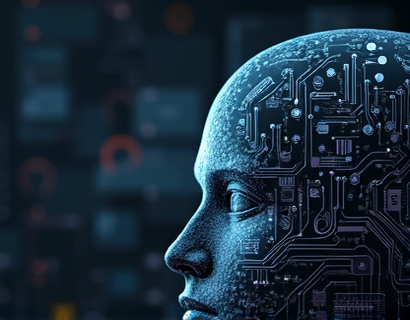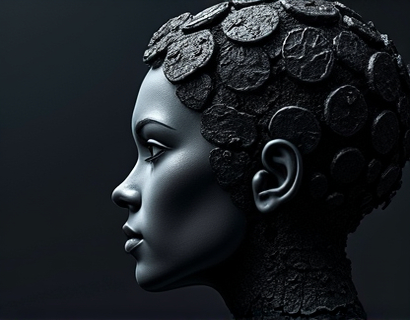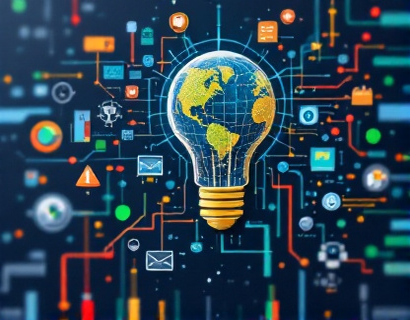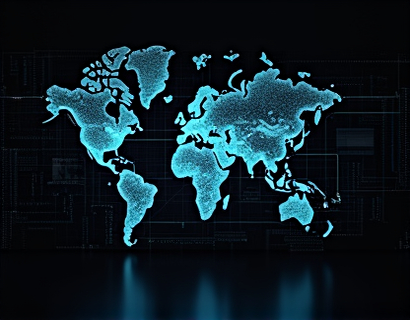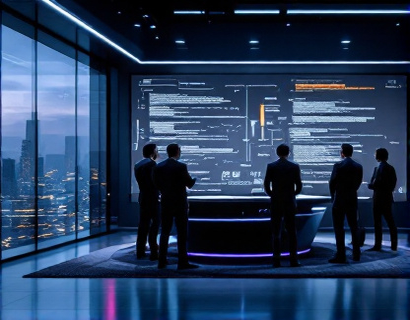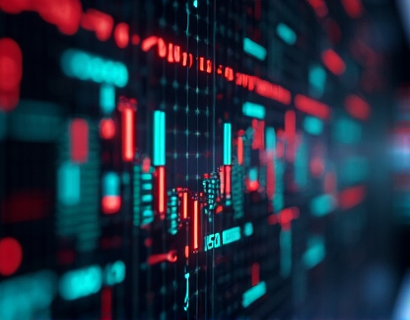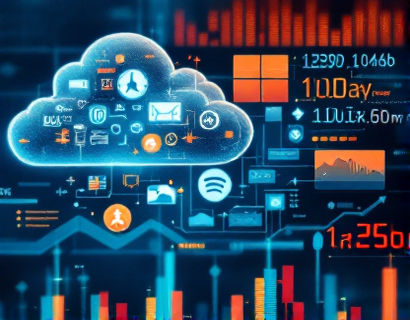Unleashing Next-Gen Productivity: The Synergy of AI and Crypto
The intersection of artificial intelligence and cryptocurrency is giving birth to a new era of digital innovation, one that promises to revolutionize how we approach productivity and workflow management. This convergence is not just a technological curiosity but a practical solution for businesses and individuals seeking to enhance efficiency, security, and innovation in their digital endeavors. As we delve into this topic, we will explore how AI and cryptocurrency are merging to create advanced digital tools that streamline tasks, secure transactions, and unlock new possibilities for productivity.
Understanding the Basics: AI and Cryptocurrency
To fully appreciate the impact of this convergence, it's essential to understand the fundamental concepts of both AI and cryptocurrency. Artificial intelligence, or AI, refers to the simulation of human intelligence processes by machines, particularly computer systems. These processes include learning, reasoning, problem-solving, perception, and language understanding. AI technologies such as machine learning, natural language processing, and computer vision are rapidly advancing, enabling machines to perform tasks that traditionally required human intervention.
Cryptocurrency, on the other hand, is a digital or virtual currency that uses cryptography for security and operates on a decentralized network, typically a blockchain. Bitcoin, launched in 2009, was the first and most well-known cryptocurrency, but since then, thousands of alternative coins (altcoins) and tokens have emerged, each with unique features and use cases. Cryptocurrencies offer a secure, transparent, and tamper-proof way to conduct transactions without the need for intermediaries like banks.
The Convergence: AI-Powered Cryptocurrency Solutions
The combination of AI and cryptocurrency is leading to the development of sophisticated solutions that enhance various aspects of digital finance and productivity. One of the most significant areas of innovation is in the realm of smart contracts. Smart contracts are self-executing contracts with the terms of the agreement directly written into code. AI can optimize smart contracts by analyzing vast amounts of data to predict outcomes, identify potential risks, and automate complex decision-making processes. This results in more reliable and efficient contract execution, reducing the need for manual oversight and legal interventions.
Another area where AI and cryptocurrency intersect is in the domain of decentralized finance (DeFi). DeFi platforms leverage blockchain technology to provide financial services such as lending, borrowing, and trading without traditional financial intermediaries. AI algorithms can enhance DeFi by providing real-time market analysis, risk assessment, and automated trading strategies. These AI-driven tools help users make more informed decisions, optimize portfolios, and mitigate risks, all while maintaining the transparency and security inherent to blockchain technology.
Enhancing Productivity with AI and Crypto
The synergy between AI and cryptocurrency is not limited to financial applications; it extends to various productivity tools and services. For instance, AI-powered virtual assistants integrated with cryptocurrency wallets can manage financial tasks seamlessly. These assistants can automate transactions, track expenses, and provide real-time financial insights, all accessible through a user-friendly interface. This integration ensures that users can focus on their core activities while letting AI handle the mundane and repetitive financial tasks.
Furthermore, AI can significantly improve the security of cryptocurrency transactions. Machine learning algorithms can detect and prevent fraudulent activities by analyzing patterns and anomalies in transaction data. This proactive approach to security is crucial in a digital landscape where cyber threats are increasingly sophisticated. By combining AI with blockchain's inherent security features, the resulting systems offer a robust defense against potential vulnerabilities.
Streamlining Workflows with Blockchain and AI
Blockchain technology, with its decentralized and immutable ledger, provides a transparent and secure way to record and verify transactions. When combined with AI, the potential for streamlining workflows becomes even more pronounced. AI can process and analyze data from blockchain networks to identify inefficiencies, predict future trends, and automate routine tasks. For example, in supply chain management, AI can track the movement of goods using blockchain to ensure authenticity and traceability, while automating inventory management and logistics planning.
In the realm of project management, AI-driven tools can integrate with blockchain-based platforms to create smart contracts that automatically trigger actions based on predefined conditions. For instance, a project milestone achieved can automatically release funds to the relevant party, ensuring timely and accurate payments without the need for intermediaries. This not only speeds up processes but also reduces the risk of errors and disputes.
Innovative Applications in Various Industries
The convergence of AI and cryptocurrency is finding applications across multiple industries, each benefiting from the unique strengths of both technologies. In the healthcare sector, AI can analyze medical data stored on blockchain to provide insights for diagnosis and treatment, ensuring patient data privacy and integrity. In the real estate market, AI-powered platforms can facilitate property transactions using cryptocurrency, reducing transaction costs and increasing the speed of transfers. The entertainment industry can leverage blockchain for secure and transparent royalty distribution, with AI optimizing content recommendation and monetization strategies.
In the education sector, blockchain can ensure the authenticity and portability of academic credentials, while AI can personalize learning experiences and provide real-time feedback to students. These applications demonstrate the broad potential of AI and cryptocurrency to transform traditional processes and create more efficient, secure, and innovative solutions.
Challenges and Considerations
Despite the numerous benefits, the integration of AI and cryptocurrency is not without challenges. One of the primary concerns is the regulatory landscape. As both AI and cryptocurrency operate in relatively uncharted territories, regulatory frameworks are still evolving. Businesses and developers must navigate these regulations carefully to ensure compliance and avoid legal pitfalls. Additionally, the technical complexity of integrating AI with blockchain requires skilled professionals who can bridge the gap between these two domains.
Another consideration is the scalability and performance of blockchain networks. While blockchain offers many advantages, it can sometimes struggle with transaction throughput and processing speed. AI can help mitigate these issues by optimizing network operations and developing more efficient consensus mechanisms. However, ongoing research and development are necessary to address these challenges and fully realize the potential of AI and cryptocurrency integration.
Future Outlook: The Next Generation of Digital Solutions
Looking ahead, the future of AI and cryptocurrency integration holds immense promise. As technology continues to advance, we can expect more sophisticated and user-friendly tools that seamlessly combine the strengths of both fields. The development of interoperable blockchain platforms, enhanced AI algorithms, and improved user interfaces will further drive innovation and adoption. The next generation of digital solutions will not only enhance productivity and efficiency but also open up new possibilities for creativity and collaboration.
For tech-savvy innovators and early adopters, the convergence of AI and cryptocurrency represents a fertile ground for exploration and experimentation. By staying at the forefront of these developments, individuals and businesses can gain a competitive edge, unlock new opportunities, and contribute to the evolution of the digital landscape. Whether through developing new applications, optimizing existing processes, or simply staying informed, the potential for impact is vast and exciting.
In conclusion, the integration of AI and cryptocurrency is more than just a technological trend; it is a transformative force that is reshaping the way we work, transact, and innovate. By embracing this convergence, we can unlock a new era of productivity and digital excellence, paving the way for a more efficient, secure, and innovative future.



